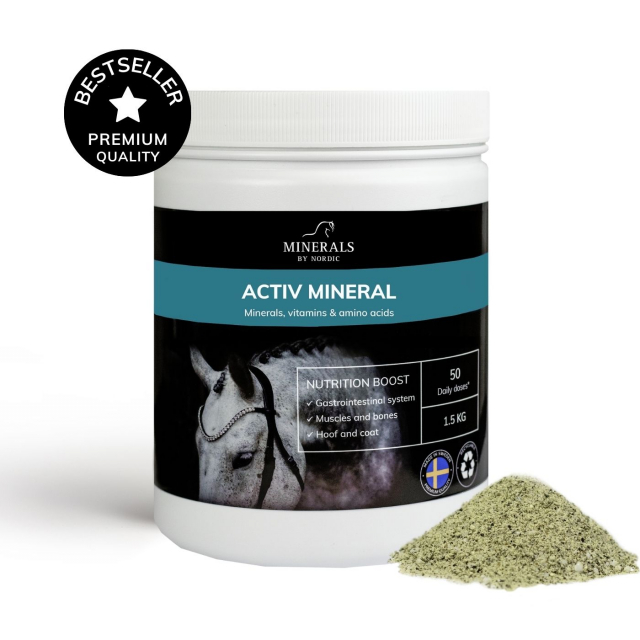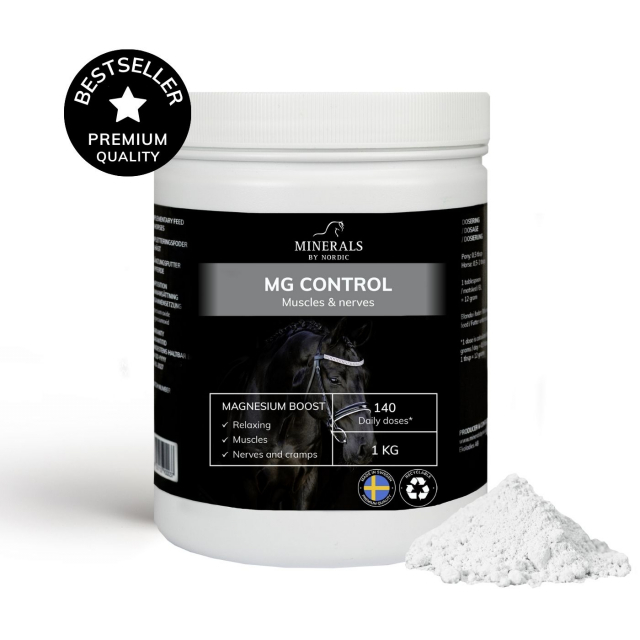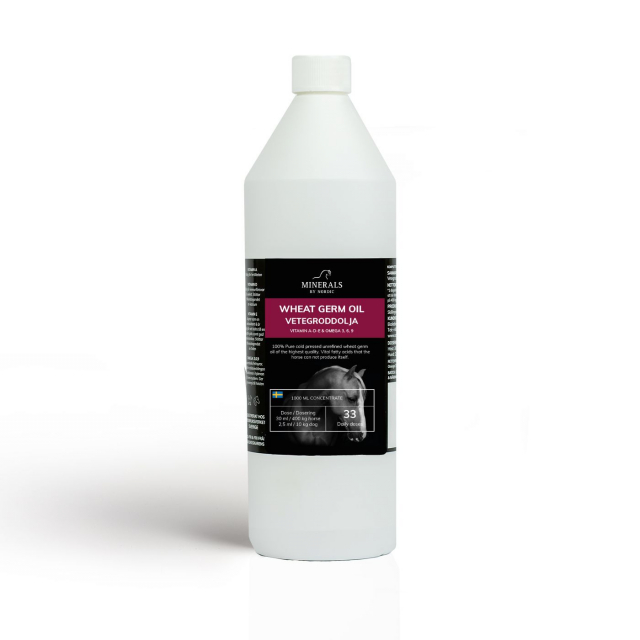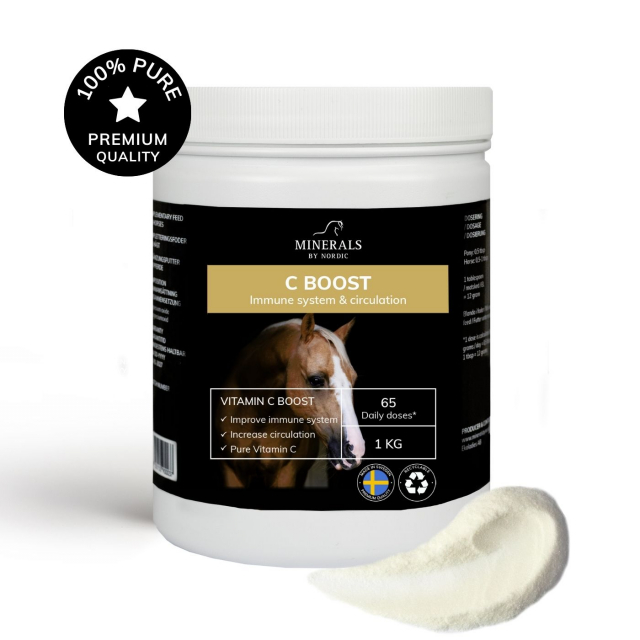
Natural sources of vitamins for horses
Ensuring that your horse receives all the necessary nutrients is crucial for its health, well-being, and performance. Supplements definitely have their place in a horse's diet, but it’s also important to consider natural sources of vitamins and minerals to provide a balanced and nutritious diet as much as possible. Here, we will explore various natural sources of these essential nutrients and how you can include them in your horse's daily diet.
1. Pastures
Pastures are one of the most natural sources of nutrition for horses. Green grass is rich in a variety of vitamins and minerals, including vitamins A, E, and beta-carotene. These nutrients are important for the horse's vision, skin, hoof health, and immune system. By allowing your horse to graze on a diverse pasture, it not only gets access to vitamins and minerals but also physical exercise and mental stimulation. If you have a horse that, for various reasons (such as obesity, insulin resistance, history of laminitis, etc.), cannot graze, it is important to provide the horse with the vitamins and minerals it would otherwise have obtained from the grass to avoid nutrient deficiencies.
2. Hay
Hay is an extremely important cornerstone in a horse's diet and can be an excellent source of many vitamins and minerals, including vitamins A, D, E, and K, as well as calcium and magnesium. Depending on where the hay is grown, what grass varieties it contains, and how it is harvested, the nutritional value can vary. High-quality hay is essential for a healthy and well-balanced horse. It is recommended to have the hay analyzed to know its contents and then supplement based on the results.
3. Seeds and nuts
Flaxseeds and sunflower seeds are rich in essential fatty acids, protein, and various vitamins and minerals. These nutrients are important for the horse's skin and coat quality, energy metabolism, and overall health. You can find these in Höveler’s Pur.Mash.
4. Natural Oils
Flaxseed oil and wheat germ oil are rich in omega-3 and omega-6 fatty acids as well as vitamin E. These fatty acids and vitamins are essential for the horse's skin and coat quality, joint health, and immune system. Mix small amounts of natural oil into the feed to boost your horse's health.
By varying your horse’s diet and including different natural sources of vitamins and minerals, you can help meet its nutritional needs. It is also important to monitor your horse's overall health and potential deficiencies through regular veterinary check-ups and forage analyses.
.jpg)
Can my horse consume too many vitamins from natural sources?
Yes, it is possible for a horse to consume too many vitamins from natural sources if it eats large amounts of certain feeds that are rich in specific nutrients. For example, excessive consumption of vitamin A-rich foods such as carrots or beets can lead to hypervitaminosis A, which can cause health issues such as skin irritation, bone problems, and liver issues.
Therefore, it is important to be cautious not to overfeed the horse with feeds that are extremely rich in certain vitamins and minerals. It is also wise to monitor the amounts of various nutrients the horse gets through its diet and avoid excessive use of supplements.
When should I supplement my horse with vitamins and minerals?
It is important to supplement your horse with vitamins and minerals when its natural intake of these nutrients may be insufficient for its needs. A balanced diet is the foundation of good health. Here are some situations where supplementation with vitamins and minerals can be beneficial:
1. During periods of intense training or competition: Horses that are in hard training or competing regularly may require extra vitamins and minerals to support their energy metabolism, muscle recovery, and immune system.
2. Seasonal feeding: During periods when the grass is less nutrient-rich, such as in the winter months or during dry periods, it may be necessary to supplement the horse with additional vitamins and minerals to compensate for the lack of nutrients in the grass.
3. During rehabilitation or recovery: Horses recovering from injuries or illnesses may need extra support to promote healing and recovery. Supplementation with vitamins and minerals can help support their immune system and tissue regeneration.
4. For older horses: Older horses may have more difficulty absorbing and utilizing nutrients from their diet, which can lead to deficiencies. Supplementing with vitamins and minerals can help compensate for this and promote their overall health and well-being.

 SWE
SWE



 ENG
ENG NO
NO AX
AX DE
DE